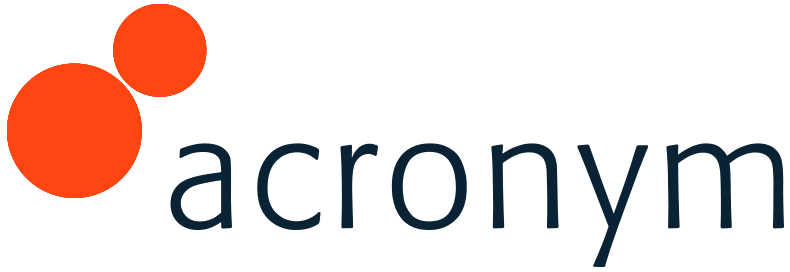I remember my first global pitch when we (Acronym) opened our Asia Pacific regional office in 2006. Back then, it was fashionable to work with large digital marketing agencies that had an extensive global footprint as part of a holding company’s network (and in some cases this came with equitably extensive agency fees to support these offices).
Global footprints and holding companies were preferred because they were perceived to be more productive with a wider reach. Clients felt that access to a large network of in-office, on-the-ground staff was critical to success. Likewise, in-market equated to a team that had plenty of local knowledge and experience to inject into the client’s projects.
But, this begs the question: is bigger always better?
Not necessarily. Here’s why –
Access to a more talented team.
Independent agencies, like Acronym, are gaining popularity because they can focus more on a specific niche, marketing vertical or industry segment. They hire (or groom) talent to become subject matter experts. This approach facilitates delivery of best-in-class solutions for the client portfolios.
Independent agencies also prioritize staffing based on skillsets, experience, and expertise rather than focusing on where staffing resources are physically located.
This means clients get to work with a group of highly skilled experts who excel in their niche areas of expertise. Additionally, their passion drives continual expansion of knowledge in their specialized discipline.
Higher productivity, increased efficiency.
Often, independent agencies operate on the premise of strategically located home or satellite offices between key time zones. Clients can still get the 24/7 coverage they desire without working with large agencies with offices in all major cities.
Independent agencies are also more eager to please, hence unlikely to be boxed into the “9 to 5” business hours regime. In fact, working around client schedules is an unwritten code of conduct.
Furthermore, doing more with smarter, dedicated teams is inherent in an independent agency’s core competency – it’s part of the DNA.
Extension of your marketing team.
A personalized approach is synonymous with independent agencies. They are structured to provide a more one-to-one approach to each Client’s marketing requirements. Account teams invest time in getting to know their clients and believe in building long standing partnerships.
For clients, this means that they get to meet every person that is working on their account. This leads to more in-depth conversations on strategy, capitalization of industry trends and a collaborative approach to achieving business goals and success.
Clients are in direct contact with the specialists working on their account. This allows for an open flow of communication between the client and a group of specialists who operate like an extension of the client’s in-house marketing team.
Questions get dispersed in a more direct and efficient way, and clients receive answers quicker.
More creative solutions.
A “one size fits all approach” is rarely the case with an independent agency, whereas it’s the modus operandi for agencies led by holding companies whose cookie-cutter approach tends to deliver faster output. The personalized communication from an independent agency often leads to more thought-through and customized solutions that address clients’ unique marketing challenges. Put another way, independent agencies are accustomed to change and we can do so faster because we don’t have layers upon layers upon layers of bureaucracy to overcome.
Being flexible & nimble means independent agencies look for the best way to deliver positive results and are not afraid to do things differently, which may ultimately help clients gain a competitive edge through a more diverse perspective. Without being pegged to a ”certain way of doing things”, creative problem solving or addressing challenges comes naturally.
Moreover, keeping closely attuned to industry trends leads to the application of new ideas, concepts, and strategies relevant to specific industry sectors. Independent agency teams continually identify areas of growth and new opportunities due to the evolving nature of specialized disciplines or industry sectors. As an independent agency, we know how business is run and how important it is to keep one’s eye on the bottom line. We do it every day for ourselves as well as for our Clients. It’s just a part of who we are.
Higher propensity to invest in tools & technology.
Big agencies have big overheads. It’s no secret that the cost of office space, employee benefits, salaries and perks are passed on to the client in the form of high monthly retainers or hourly rates – rates that are usually established by the holding companies, not the actual agencies in the trenches.
Lower overheads and operational efficiencies enable independent agencies to reinvest these savings into tools and technology to help them operate like well-oiled machines. These include marketing automation, CRM, project management and other tools to improve efficiencies and drive success.
In addition, investment into technology enables multiple modes of working. Data is saved on cloud and access and security are tailored for different working modes. Applications and communication tools also allow seamless virtual communication and collaborations.
Virtual first – The (not so) new way of working.
The pandemic has normalized the work from home culture and more companies are going down the route of permanent remote working. Independent agencies are naturally set up for this style of working as they have been doing this for decades.
Often the workplace is distributed across home, office, and satellite offices. Agency resources can choose to work remotely or face-to-face based on their nature of work and teams’ preferences.
Account managers are more experienced at knowing how to manage, train, collaborate, evaluate performance, and motivate their team remotely.
Going back to our 2006 global pitch, we did secure the business because the above benefits (and more) resonated with the Client, and they continue to enjoy a strong partnership and more personal working relationship with highly skilled resources.
Perhaps it’s time more Clients did away with the Global Footprint consideration and holding company network and focused on agency partnerships outfitted to deliver success.
POV by Farah Sadiq, EVP & GM, International







